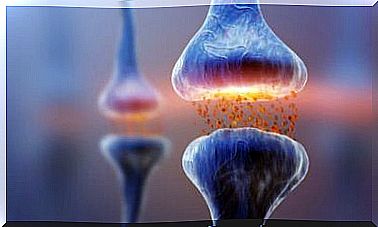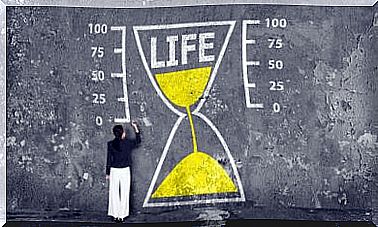Is It Possible To Master Obsessive-compulsive Disorder?

Mastering OCD is possible, although those with OCD or those around them may think they are in a dead end tunnel. However, there are effective psychological treatments to deal with it.
The dictionary indicates that obsession is “a mental disorder produced by a fixed idea ”. He also defines it as “an idea that assaults the mind with tenacious persistence”. In colloquial language we use the word mania rather than obsession, reserving the latter term to speak of a very disturbing mania or fixation.
Mastering obsessive-compulsive disorder is possible
The two greatest fears of human beings are death and madness. Both are a no-return process. Furthermore, they indicate a loss of self-control. This fear of madness is what leads many patients to deny their obsessions, or at least the seriousness of their symptoms.
The truth is, not all obsessive symptoms are equally severe. Obsessive symptomatology is like those Russian dolls we all know. They fit together until you get to the smallest. Obsessive-compulsive disorder is the most serious level and manifests as crippling obsessions and compulsions.

A significant number of people who want to master OCD feel embarrassment and discomfort and therefore do not seek help. On the other hand, many of the people who took the step and asked for help were disappointed with the results obtained.
Many patients received help from well-meaning healthcare professionals, but without training that would allow them to provide valid strategies and tools. Often, these encounters with the health system generate suffering, guilt, discouragement and mistrust. As a result, many people lose hope and confidence in their ability to master OCD.
The truth is, there is still no medical cure. However, the psychologists provide valuable tools to master the obsessive-compulsive disorder. In fact, the treatment of choice is based on psychological therapy of a cognitive-behavioral nature.
Therapy to master obsessive-compulsive disorder
Cognitive-behavioral therapies play an important role in promoting recovery for people suffering from obsessive-compulsive disorder. A study conducted by Dr. Lewis showed that the behavioral therapy generates positive changes in brain activity (Yaryura-Tobias and Neziroglu 1997b).
Cognitive-behavioral therapy helps by providing the tools necessary for a person to manage the obsessions without having to carry out the compulsions (behaviors that fuel the obsessions). Continued practice and the use of techniques and skills learned in therapy help make symptoms manageable.
Successful behavioral treatment requires motivation and daily practice. When medication and therapy are performed together, the effects of each increase. The medication alters serotonin levels and somehow stabilizes the patient so that you can work with him in therapy.
What is cognitive-behavioral therapy for obsessive-compulsive disorder based?
The main techniques for mastering obsessive-compulsive disorder are exposure and response prevention. The goal of exposure is to reduce anxiety and discomfort associated with obsessions through a process called habituation. It is a natural process that blocks compulsive behavior.
In many cases, this is done using long-term exposure to real-life anxiety and situations that evoke the rituals (compulsions). This is called “in vivo” exposure. For example, we can ask the person to touch an object they are afraid of without being able to reduce anxiety by washing their hands (in the case of an obsession with contamination).
Through repeated practice, the patient realizes that negative consequences do not appear. He also realizes that there is a point where his anxiety naturally begins to subside ; the body itself disables the alert mechanisms. This is the habituation process.
Ideally, exposure should be carried out in stages and in very small steps that lead to the ultimate goal of complete habituation to the dreaded object or situation. This is done by developing an exposure hierarchy, graded from less to greater anxiety.

Ritual prevention and cognitive changes
The purpose of preventing the ritual is to decrease its frequency. The person is instructed to have alternatives to the compulsion when it comes time to deal with the thoughts that plague him.
The cognitive component of cognitive-behavioral therapy involves the modification of distorted thoughts and beliefs. However, it is noteworthy that cognitive therapy is useful when combined with exposure and prevention of rituals. By themselves, the observed results are not conclusive.
As we have seen, there are tools and approaches that can help master OCD. Most interventions have exposure and response prevention as fundamental components, in addition to modifying distorted beliefs or thoughts.









